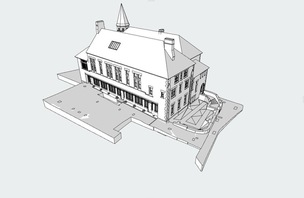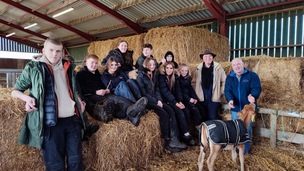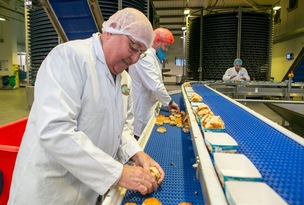FARMERS in Barnsley’s most isolated locations have been hit in the pocket to the tune of hundreds of thousands of pounds by criminals targeting high-value machinery, a study has revealed.
The National Farmers’ Union (NFU) published its annual rural crime report last week, which said crime cost farmers in Barnsley communities such as Penistone, Ingbirchworth, Dunford Bridge, Royston and Shafton an estimated £675,000 in 2018, a rise of 4.9 per cent on the previous year’s figures.
It’s been alleged that organised crime rings have been identifying farms - seen as easy targets due to their isolated setting and easy road routes out of the county - with the use of drones before targeting tractors, Land Rovers and quad bikes.
A spokesperson from the NFU said: “The nature of crime in the countryside has changed dramatically and attacks are being carried out by organised criminals - the impact of which is reverberating across our local communities.
“Criminal networks are exploiting modern keyless security to meet a rising demand for high-end vehicles and their parts. Luxury four-by-fours are being taken from farms and country homes and finding their way to ‘chop shops’ where they are dismantled.
“What’s more, even the most urban of farms will anticipate slower police response times due to geographical location.
“Calculating the cost of rural crime to a farmer is a lot more complicated than simply the replacement costs.
“Downtime without valuable and appropriate equipment, hassle to sort replacements and ultimately the mental and emotional stress from these blights are added bolt-ons to what they have to handle.
“Rural crime is about far more than cost. The fear of crime can mean people are afraid to leave their homes and farms unattended, which adds to levels of isolation.”
A spike in related crime, relayed to police at public meetings held each month, resulted in dedicated operations being adopted by South Yorkshire Police who have been working alongside their West Yorkshire colleagues.
Operation Reach and Operation Dunlin both saw officers flood affected areas, providing assurance to farmers and residents, before patrols were carried out on Barnsley’s main road routes such as the A629 having been identified as a ‘crime corridor’.
However limited police resources remain a primary concern of victims, according to the NFU but bosses say they are ‘committed’ to dealing with rural crime through regular patrols and the continuation of their specific operations.
According to the NFU, there has been a 54 per cent increase in insurance claims in rural communities in Barnsley, with some farmers facing soaring premiums due to the extent of the burglaries.
Coun Hannah Kitching, who represents the Penistone West ward, called on the police to do more for residents in vulnerable locations.
“It doesn’t come as a shock that the cost has increased as it’s something that’s continuously affecting farmers in our area,” she told the Chronicle.
“There’s a lot of distrust between them and the police, and the main point of what they’re saying is to do with South and West Yorkshire’s divide.
“I have some people who live in South Yorkshire but their land stretches into West Yorkshire - the criminals who target these people know all about that and they’re not going on a whim, their break-ins are planned.
“This semi-rural crime rise has severely affected residents in my ward and I believe there’s a real problem with organised crime groups who are specifically targeting hard-to-reach communities.
“They are getting away with costly equipment: four-by-fours, tractors, quads& Penistone is a huge area to police and unfortunately there are not enough officers in this part of Barnsley.
“Criminals are exploiting hard-working farmers purely because of the location they’re in and there’s millions of pounds being unspent, so let’s see that being ploughed back into neighbourhood policing where it really matters.”





























